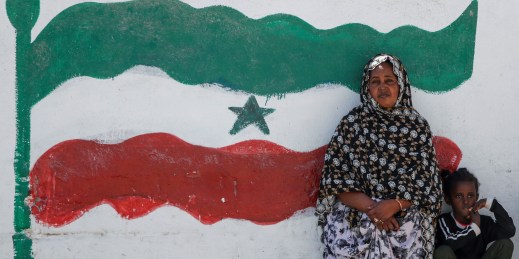Insurgencies Archive
Free Newsletter
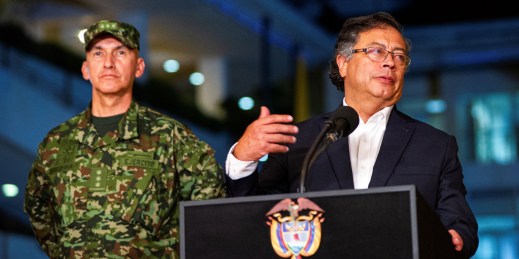
As part of his “Total Peace” plan, President Gustavo Petro has asked Colombia’s armed groups clamp down on lethal violence. While some have complied, others have traded conspicuous violence for other types of coercion, leading many to fear they are taking advantage of the government’s outreach to quietly dig in their heels.
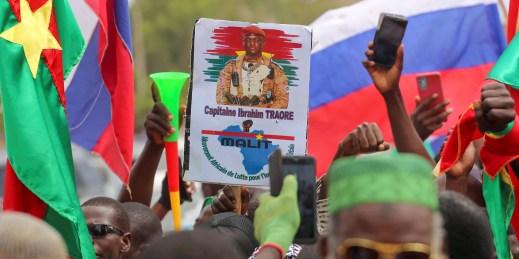
The European Union and U.S. often fixate on democratic elections as the basic foundation of political legitimacy. But in West African states such as Mali and Guinea, elections have led to contested outcomes or enabled authoritarian power grabs, profoundly unsettling the hopes of many in and outside the region for a more stable future.
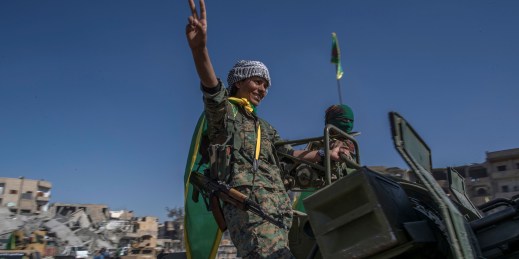
Many popular accounts of women’s experiences during war exoticize and decontextualize female fighters, while underscoring women’s vulnerability and victimhood at the expense of their agency. But these narratives can have high costs, making a more holistic understanding of women’s contributions to armed groups urgently necessary.
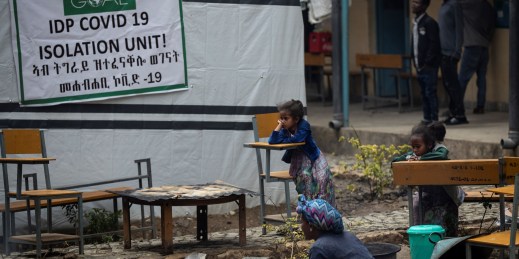
Three years ago, U.N. Secretary-General Antonio Guterres called on warring parties to “put armed conflict on lockdown” to allow health workers to fight COVID-19. The call for a global cease-fire created a glimmer of hope during the early days of the pandemic. But today it feels like a historical footnote from a very different time.

